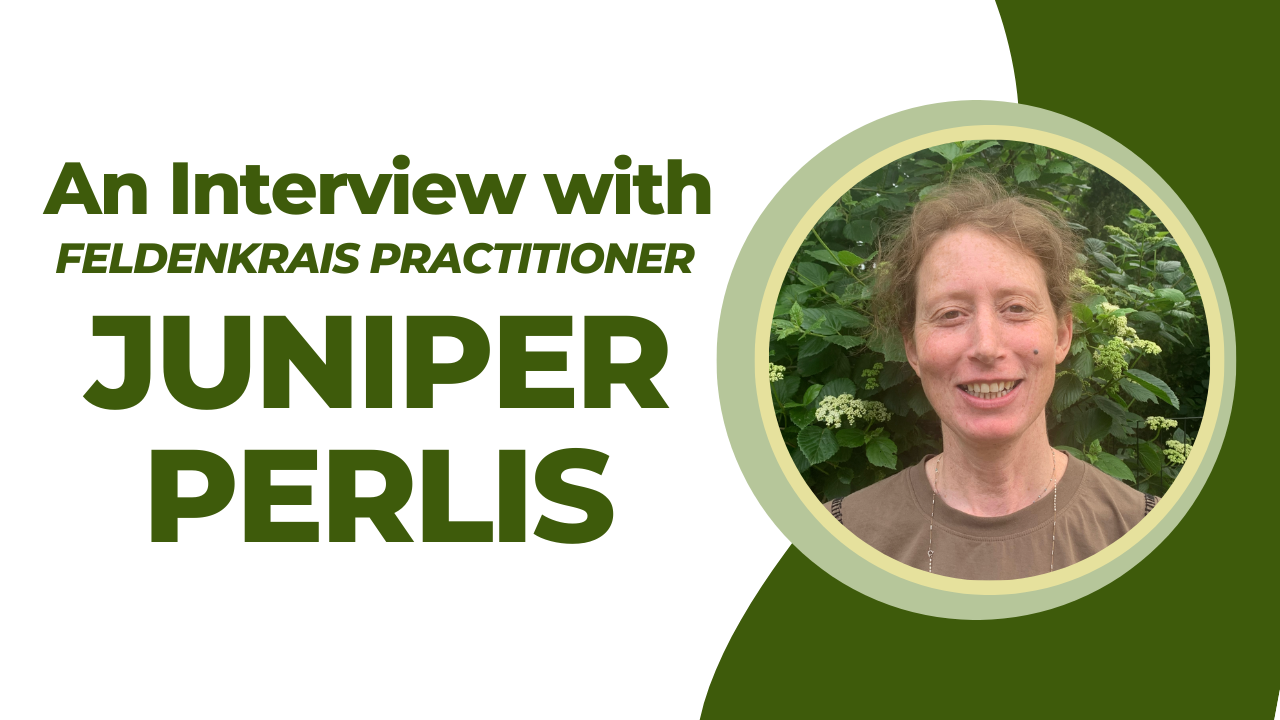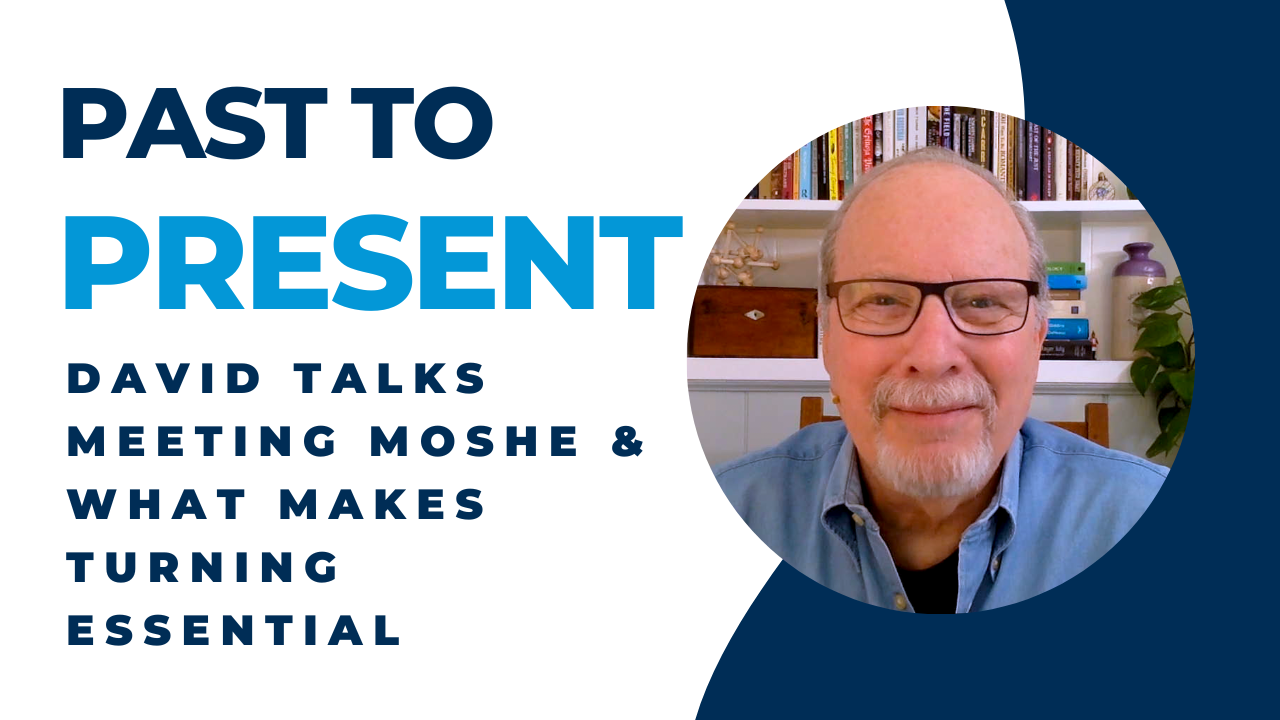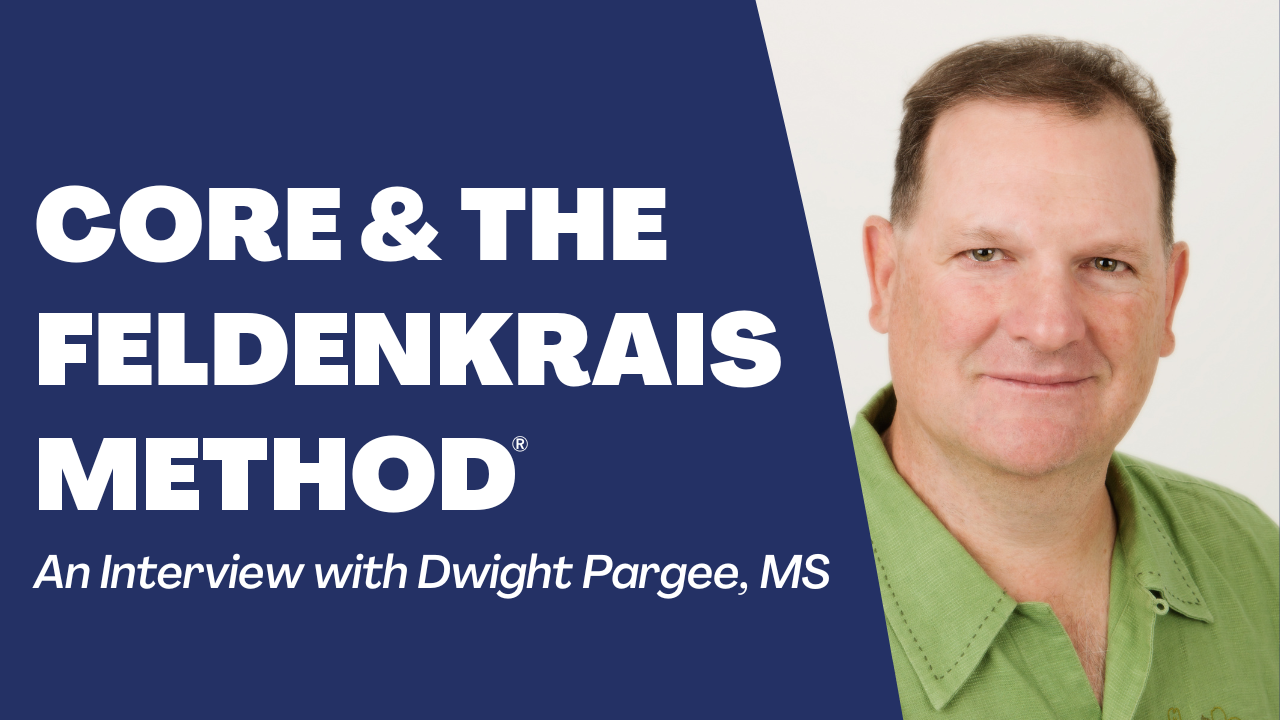Thinking
Feldenkrais
How to Approach a Feldenkrais Lesson that Is Difficult

Excerpted from a Question and Answer session with David:
At the outset, it is important to state if a lesson feels too challenging, you don't have to do it. On the other hand, challenging lessons can sometimes be very rewarding. So, what can you do when a lesson is difficult? One approach is to do as much of the lesson as you can do comfortably, and then say, "Okay, that's enough. I did the first fifteen or twenty minutes. I feel good, I felt the difference, and I think I'll stop now." This would be a reasonable and resilient modification of the lesson.
A resilient learner facing a moment of failure doesn't say, "Oh no, I'm finished! I'm never going to ...
Getting to Know Garet Newell

Ira Feinstein: How did you find out about the Feldenkrais Method?
Garet Newell: I was a graduate student at New York University in the Department of Dance, and Awareness Through Movement by Moshe Feldenkrais was one of our required reading books. This was in the mid-‘70s, and there were no teachers of the Feldenkrais Method in New York. So, I didn't have a chance to experience it, but I was impressed by what I read in the book.
Ira: What led you to become a practitioner?
Garet: After I finished my MA, I moved to San Francisco because I had done some courses with Anna Halprin, a dance and performance innovator, and I wanted to work with her. One night, I was at a meditation group I belonged to, and someone asked me if I’d met the Feldenkrais teacher who was there. I made a beeline for him and it was Jerry Karzen, a student in Dr. Moshe Feldenkrais’ first professional training in the United States.
I’d been having neck problems as a result of an accident, and I asked him for a les...
Practitioner-Focused Summer Sale

May Flash Sale

During our May Flash Sale, we're offering 40% off the following online Feldenkrais programs:
- How to Survive Sitting: Learn to maintain your flexibility and freedom of movement while sitting! This seven-lesson program is designed to help you reduce the stress of sitting on your skeletal system and musculature. It is taught by David Zemach-Bersin. Sale: $71.40 (Reg $119)
- Reducing Your Body Pattern of Stress & Anxiety: A series of seven Feldenkrais lessons and seven short exercises designed to help you reduce symptoms of anxiety. Benefits include a greater ability to manage stress and improved overall well-being. Taught by David Zemach-Bersin. Sale: $71.40 (Reg $119)
- Posture for Life: This program by David Zemach-Bersin stimulates new neural pathways in your brain to support the development of healthy posture, freedom of movement, and a greater sense of well-being. Each lesson will help you to dissolve old postural habits. Sale: $89.40 (Reg $149)
- Liberate Your Spine: This origin ...
Knee Pain & the Feldenkrais Method

Chronic knee pain was one of the catalysts in the development of the Feldenkrais Method. Dr. Feldenkrais, a Physicist, Engineer, and Judo Master, had suffered a series of injuries that had resulted in a painful knee problem that threatened his ability to walk. Hoping to avoid surgery -which at that time was more invasive and less sophisticated than it is today- Dr. Feldenkrais began to study how posture and movement are organized in the brain. He found that it is possible for us to engage our own neuroplasticity to benefit our body and created a process of sensory-motor learning that allows for new neural connections and results in dramatically better musculoskeletal organization and efficiency. Thanks to his studies and discoveries, Dr. Feldenkrais was able to avoid surgery and walk for the rest of his life. Fortunately, he continued his explorations and developed an approach that enriches and helps us today.
In Intelligent Knees for Better Walking with Raz...
Juniper talks about Chronic Pain, the Feldenkrais Method, & more!

Ira Feinstein: Thanks for talking with me today, Juniper. I'm excited to learn more about your path to becoming a Feldenkrais Practitioner. How did you find out about the Feldenkrais Method?
Juniper Perlis: The first time I heard about the Feldenkrais Method, I was getting my master's in fine art, and a guest practitioner taught a class. I didn't enjoy it, and afterward, it left my mind. Fast-forward six years, and I was working as a nanny for two artists. One day, working in the studio, I spent hours peeling paint, when I got frustrated and moved in such a way that I dislocated a rib. I was instantly in excruciating pain. It changed the course of my life.
It didn't take long before the pain got worse. I had pain radiating into my hands, facial pain, and other weird symptoms that didn't seem related. I saw nerve doctors, physical therapists, chiropractors, acupuncturists, Reiki practitioners, pain management specialists, Alexander practitioners, everything under the sun. Nothing hel...
Maggy talks about 'The Secrets of Your Ring Muscle System'

Ira Feinstein: How did you find out about the Feldenkrais Method?
Maggy Burrowes: I was living in a small town on the south coast of the UK called Brighton. It's an adventurous, very forward-thinking little town. I'd been taking various classes at the natural health center for a long time when a Feldenkrais workshop was offered by Garet Newell, who had come to the UK with the intention of running a training and moved into the neighborhood. At the time, I'd never heard of Feldenkrais, but I thought, well, I'm just going to try it out.
I have hypermobility issues, and it is easy for me to injure myself when moving too enthusiastically. I'd been dealing with a long-running lower back issue that manifested mainly as intermittent sciatica. Whenever it came on, I would limp around for a week or so until it got better. As luck would have it, and I do think it was luck, I had an attack the night before the Feldenkrais workshop. So I limped in on that first day and walked out with the pai...
Uncaging Your Whole Self

Our chest developed to have a lot of flexibility. We have twelve pairs of ribs, so there are 24 places where our ribs articulate with our thoracic spine, allowing our chest to move dynamically and multidimensionally in all directions. For example, I can bend my chest to the left. I can bend my chest...
An Interview with David Zemach-Bersin

Ira Feinstein: How did you meet Dr. Moshe Feldenkrais?
David Zemach-Bersin: In April of 1973, I was a senior at the University of California Berkeley, and I saw a flier on a telephone pole saying Moshe Feldenkrais was coming to town. I'd already heard of him because my psychotherapist had seen him work on somebody, was impressed, and had told me about it. I decided to register for his Berkeley workshop.
Ira: How serendipitous! What was the workshop like?
David: It was extraordinary! There were two workshops; one during the day that met for five weeks, and an evening class twice a week, open to the public. I went to one of the evening classes, which was very crowded. Probably 150 people were there. I was immediately hooked and began sneaking into the daytime class, limited to only about 30 participants studying in depth with Dr. Feldenkrais. He was in Berkeley for five weeks, and I managed to study with him most days during those five weeks.
I was stunned by the positive changes...
Core & The Feldenkrais Method

Ira Feinstein, MFA, recently spoke with Dwight Pargee, MS, about the Feldenkrais Method, Pilates, and the importance of core agility.
Ira: How did you find out about the Feldenkrais Method?
Dwight: In 1989, I returned to the United States after playing international rugby in Australia for a couple of seasons, during which I got five concussions. I had post-concussion syndrome, though there wasn't even a word for it back then. I was trying everything I could to put myself back together, Tai Chi, yoga, and reflexology because I was a little blurry. I was existing outside myself in a strange way; people who've had concussions know what I'm talking about.
My background is in sports physiology. At the time, I was working at a physical therapy clinic. One of my wise mentor PTs said, "You should check out Feldenkrais. It might help." So, I went to a weekend workshop and immediately benefited. I realized that it was what I was missing. I immersed myself in classes and individual lesso...


